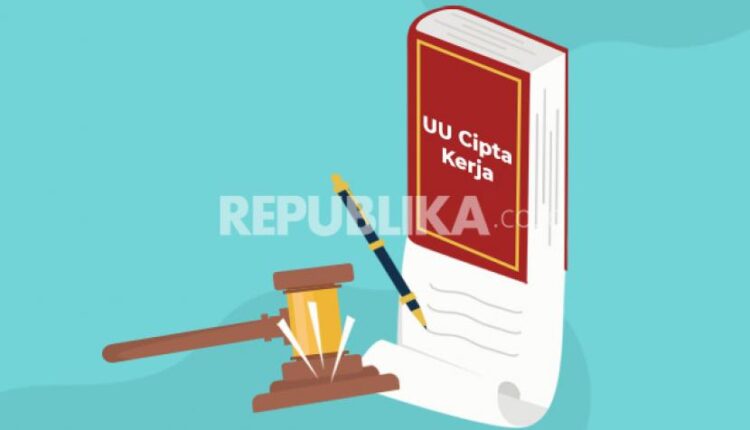Job Creation Law Concrete Efforts to Realize Economic Recovery
By: zakaria) *
The government has passed the Job Creation Law. The measure to cut regulations is considered appropriate because it can attract investors and accelerate economic recovery during the Covid-19 pandemic.
We all know that the Covid-19 pandemic has made the economic sector in Indonesia chaotic. The purchasing power of the people has decreased and almost every day the news of layoffs or employees being laid off is spread . Of course, this problem must be handled in line with efforts to deal with the pandemic in the health sector.
To support economic recovery efforts, of course, supporting regulations are needed, the regulations that have been formulated by the government are the Job Creation Law (UU Ciptaker) which is believed to encourage business growth and investment in the country through regulatory reform and ease of doing business. Its presence can accelerate national economic recovery after the Covid-19 pandemic which still grips Indonesia and the world.
Uki Dhaniswara K Harjono, as an expert in Economic Development Law, gave his appreciation to the government for introducing a new legal product, where the regulation is considered to give hope for Indonesia to restore the economy, the regulation is the Job Creation Law.
The Job Creation Law (Ciptaker), which consists of 116 articles, is able to revise 77 laws which previously contained overlapping and uncertain laws.
The Copyright Law itself touches on the issue of licensing and investment where the application of this law is an effort to increase investment which will open up wider employment opportunities.
He said that one of the positive sides of the Job Creation Law was the ease in building a company, if in the past building a company required a minimum of IDR 50 million, then with the existence of the Job Creation Law, this regulation was abolished.
Uki assessed that the Job Creation Law was also very much needed to overcome various existing problems and challenges in the future.
Such as taking advantage of the demographic bonus that Indonesia will experience in the next 10-20 years, then simplifying, synchronizing and trimming regulations because there are too many regulations issued at the central and regional levels that hinder business activities and job creation.
Uki said, in 2030, Indonesia will experience a demographic bonus where the peak will be in 2040. This means that the composition of the number of productive age will be much greater . So that a concrete solution is needed to anticipate this demographic bonus by increasing employment.
A survey from BPS said that by 2030, at least 52 million people of productive age would need work fields . The irony is that currently Indonesia is still faced with regulatory issues that hinder the provision of large jobs.
Moreover, there are 44 thousand regulations that hinder the investment climate and the business world, starting from the Presidential Decree, Perpp u, PP, Perda, Pergub and others. So that the regulations in Indonesia both at the central and regional levels are too fat. This of course becomes an obstacle for people who want to do business or open up employment opportunities in Indonesia.
According to him, the demographic bonus in Indonesia is like a double-edged sword. If jobs are not prepared, it will have a bad impact in the future.
Therefore, the government through the Job Creation Law, as early as possible tries to simplify regulations related to business licensing in Indonesia. This is very positive for creating a conducive investment climate, so as to attract more investors both from within and outside the country. The goal is for the economy to recover and the demographic bonus will not cause problems .
Uki added that Indonesia still has unresolved homework, namely social disparities. The results of the TNP2K (National Team for the Acceleration of Poverty Reduction) study, Indonesia is still in fourth place in the world regarding social inequality.
On the previous occasion, Airlangga Hartarto as Coordinating Minister for Economic Affairs, said that improving the business climate and investment in Indonesia is a must to encourage national economic recovery. For that, we need coordination and strong synergy between the Government and all stakeholders.
The government also has a target, that later the Indonesian economy can grow in the range of 4.5 percent to 5.5 percent in 2021, with inflation that is maintained at around 3 percent.
Economic problems in Indonesia must of course be overcome, economic recovery becomes a necessity if it is supported by regulations that are capable of realizing economic recovery efforts.
) * The author is a contributor to the Cikini Press Circle and Students
